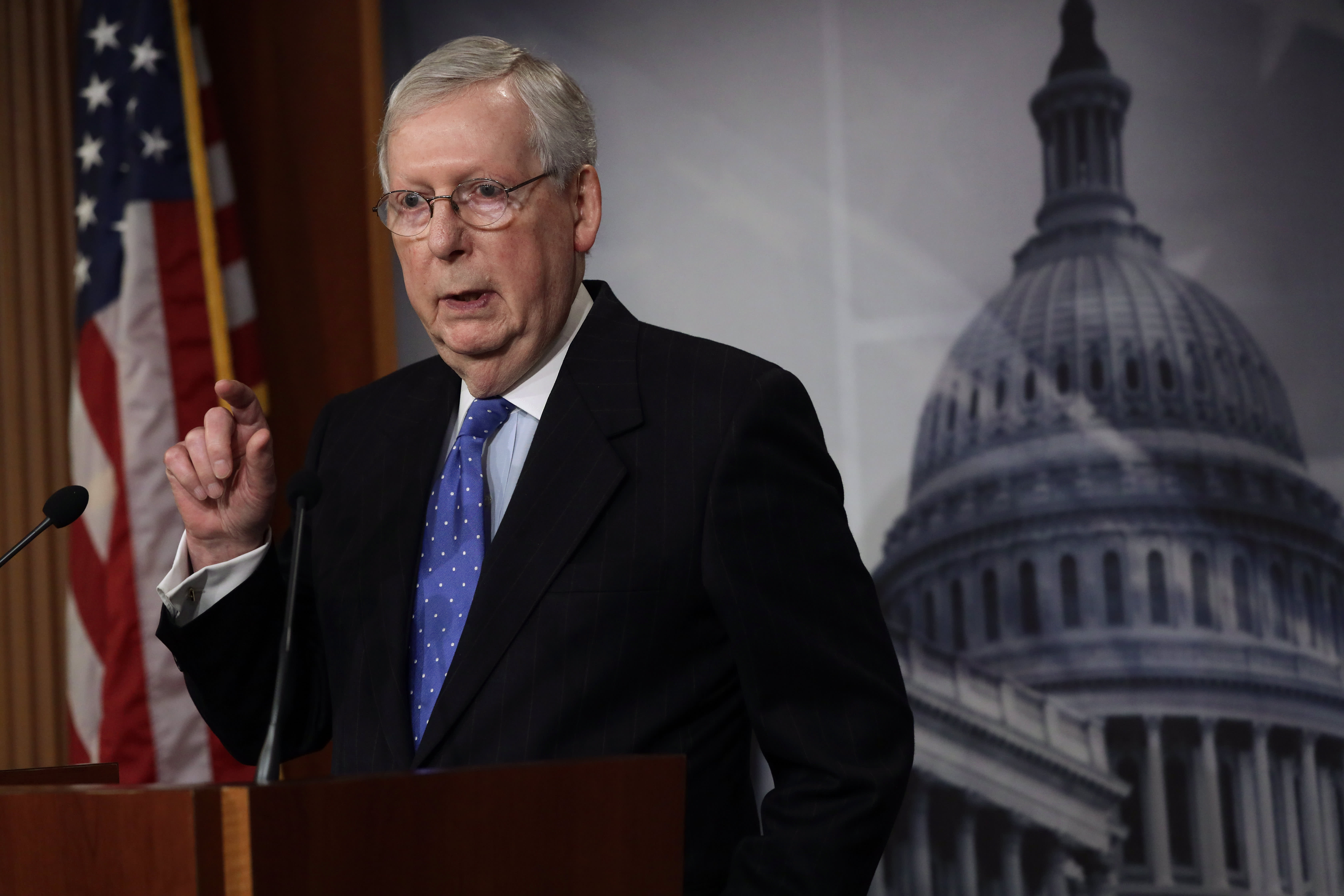
U.S. Senate Majority Leader Sen. Mitch McConnell (R-KY) speaks to members of the media during a news conference at the U.S. Capitol March 17, 2020 in Washington, DC.
Alex Wong | Getty Images
A series of key retirement provisions have made it into the latest version of the $2 trillion coronavirus relief bill.
Tucked into the measure are a series of changes that would relax rules on retirement savings, including a line item that would allow you to take a hardship distribution of up to $100,000 from your 401(k) plan without the 10% early withdrawal penalty if you’re under age 59½.
Retirees can also suspend required minimum distributions out of their retirement accounts for 2020, according to the bill.
“I do like the delay of the required minimum distributions because the value of many retirees’ accounts has fallen this year,” said Nicole Kaeding, vice president of policy promotion at the National Taxpayers Union Foundation in Washington. “It gives retirees flexibility especially if they don’t need the income.
“They leave the money in the account and let the market rebound,” she added. “From the withdrawal side, drawing from the account while the market’s down isn’t always the best strategy, but Congress is providing the flexibility for those who need it.”
Here are three retirement relief measures in the package.
Tax-favored plan withdrawals
Nora Carol Photography
The Senate’s bill would allow affected savers to take coronavirus-related distributions of up to $100,000 from retirement plans and individual retirement accounts in 2020.
Those individuals are defined as people who are diagnosed with COVID-19, spouses or dependents who have the disease or those experiencing financial consequences from quarantine, furlough, layoffs or having their hours cut due to coronavirus.
If you’re under age 59½, these withdrawals would be exempt from the 10% penalty that would normally apply.
You’re still on the hook for income taxes on any amounts withdrawn, but the bill right now would give you three years to pay these levies.
“You take the money out penalty-free, that’s OK— but you still owe the tax,” said Ed Slott, CPA and founder of Ed Slott & Co. “You’re still reducing your retirement savings and you still pay the taxes.”
You also have three years to replenish the money you had taken from your retirement account.
Bigger plan loans
The bill would also allow you to take larger loans against the money you’ve saved in your workplace retirement plan.
Normally, you can borrow only up to $50,000 or 50% of your vested account balance, whichever is less.
The measure would double that: up to $100,000 against the amount you’ve saved in your plan.
Plan loans follow a different set of rules than withdrawals. You can borrow against your savings tax-free if you meet certain requirements. If you fail to repay the loan, it’s treated as a distribution and subject to taxes.
Know your employer’s approach to loans, as some plans may require you borrow from your savings before taking a hardship withdrawal, said Paul Porretta, partner at law firm Pepper Hamilton in New York
Break on required minimum distributions
Cecilie_Arcurs | E+ | Getty Images
Starting in 2020, individuals who turn 72 are required to take annual mandatory distributions from their workplace retirement plans and their IRAs.
In prior years, this requirement kicked in after savers turned 70½ years of age.
This is known as the required minimum distribution.
The bill would suspend those RMD payments for 2020, a move that will keep taxpayers from drawing down on savings at a time when the market is in flux over COVID-19 worries.
“The relief bill is for people who are struggling, but this provision isn’t really for people who are struggling,” said Jeffrey Levine, CPA and director of advanced planning at Buckingham Wealth Partners on Long Island, New York.
“This is for people who have enough money that they don’t need to take from their retirement accounts,” he said.
More from Smart Tax Planning:
You have until July 15 to save in your IRA and health savings accounts
How those coronavirus-fueled losses can cut your taxes
Tax Day is now July 15


